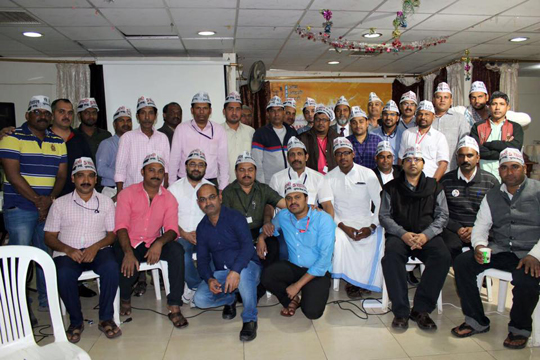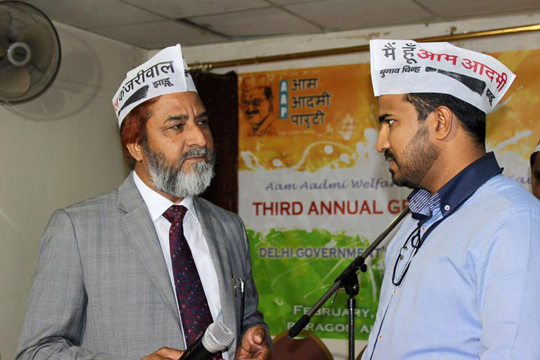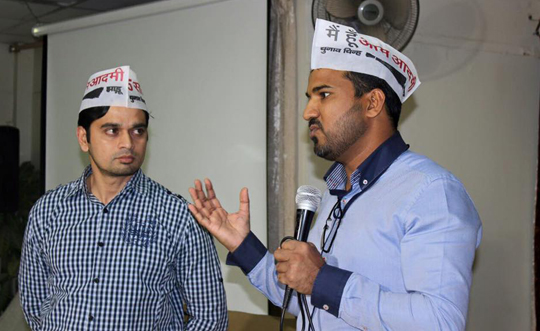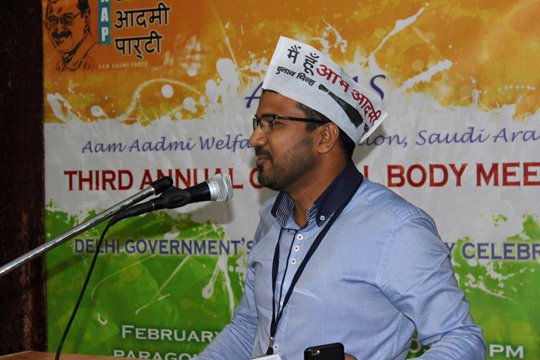Riyadh, Feb 29: Indians here held a function to observe Aam Aadmi Party's (AAP) completion of one year in office in Riyadh.

The event marked AAP's historic decision to expand its network globally including in the Gulf countries, where nearly seven million Indian expats are currently working.
Speaking on the occasion, a legislator of Delhi's ruling party and the party's co-convener of its Overseas Chapter, Adarsh Shastri, said the party provides an alternative system of good governance.
“India's deep rooted corruption and dynastic political system will be transformed to non-corrupt, development- and issue-based governance by AAP,” he said and hailed Arvind Kejriwal's leadership.
The event, attended by a large number of expatriates, also provided an opportunity to take stock of the situation of India, which has been marred by several controversies and movements in recent times.
Shastri said the mood of the country toward the political system has changed after path-breaking initiatives taken by the AAP government after it came to power in Delhi in early 2014.
Social infrastructure like education, health, social welfare have been given top priority while free water, electricity, abolition of VIP status, completion of public projects were ensured to be completed within stipulated time.
Besides, citizens participation in administration through mohalla sabha, passing the janalokpaal bill, taking strict action against corrupt officials have restored people's confidence in government and party, he said.
Kerala State Convener C. R. Neelakandan also spoke on the occasion, which was presided over by Basheer Aramboor. Mansoor welcomed the audience while Abdul Azees proposed the vote of thanks. Shameem conducted the program.
During the interactive session that followed, a number of questions about AAP including poor attention given to senior citizens in government hospitals, poor health infrastructure, corruption, unauthorized constructions, adulteration in food items, turning Yamuna shores into spots for tourist attraction, participation of public in decision-making process and other issues were discussed. AAP has developed a strong support base in India as well as among the Indian expatriates community across the globe. Party supporters and well-wishers from the different parts of the country participated in the event.








Comments
Thank you for the wider coverage of the event and positive comments. AAP is expanding its support base drastically, common man looking for progressive political change. Hope AAP will deliver the peoples expectations n with their support.
- Basheer Aramboor, Convener AAP Riyadh
Supply of free water, electrify, wifi, if it is true it will boost their image in other states also. Same way reduce house tax also. This is because it is being increase consistently. Sami irritations like paid Parking in cities if removed will make the citizens have a breath of relief. Politicians hardly understand this. Since Arvind may grasp the seriousness of the points raised, who will inform him or bring this to his attention. These are issues people are suffering worth attending to if u really care for the aam aadmi instead of tall claims. Difference will declare itself in th next general election .
Insha allah if allah wills we will open one AAP branch in Yanbu And Jubail soon.
Add new comment